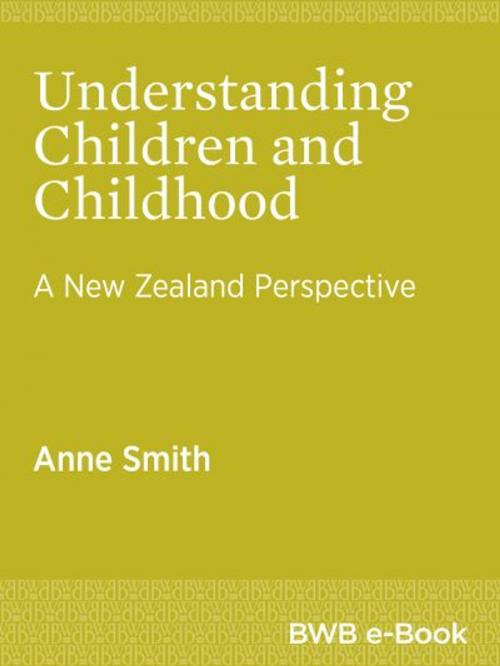Understanding Children and Childhood
A New Zealand Perspective
Nonfiction, Reference & Language, Education & Teaching, Educational Theory, Educational Reform, Health & Well Being, Psychology, Child & Adolescent, Child Development, Social & Cultural Studies, Social Science| Author: | Anne Smith | ISBN: | 9781927277119 |
| Publisher: | Bridget Williams Books | Publication: | May 1, 2014 |
| Imprint: | Language: | English |
| Author: | Anne Smith |
| ISBN: | 9781927277119 |
| Publisher: | Bridget Williams Books |
| Publication: | May 1, 2014 |
| Imprint: | |
| Language: | English |
Understanding Children and Childhood examines how and why children develop, and how they interact with the people and events in their lives. Emphasising that children grow up in diverse cultural contexts, Anne Smith’s book builds an understanding of childhood in New Zealand based on childhood studies and sociocultural theory.The voices and experience of children are central to this book. The varied contexts within which children learn and come to understand the world are explored; case studies and examples reflect children’s experiences from their perspective. Use of the latest research and policy completes a rich introduction to the key stages, theories and debates of childhood development.Children’s rights and social justice issues are foregrounded early, embedded in a broad theoretical framework. Children’s development is then presented as driven by learning, supported by opportunities for reciprocal social interaction across diverse cultural contexts. This approach highlights the importance for children of working collaboratively and thinking flexibly, enabling them to cope with the new, challenging and uncertain futures of twenty-first century New Zealand.
Understanding Children and Childhood examines how and why children develop, and how they interact with the people and events in their lives. Emphasising that children grow up in diverse cultural contexts, Anne Smith’s book builds an understanding of childhood in New Zealand based on childhood studies and sociocultural theory.The voices and experience of children are central to this book. The varied contexts within which children learn and come to understand the world are explored; case studies and examples reflect children’s experiences from their perspective. Use of the latest research and policy completes a rich introduction to the key stages, theories and debates of childhood development.Children’s rights and social justice issues are foregrounded early, embedded in a broad theoretical framework. Children’s development is then presented as driven by learning, supported by opportunities for reciprocal social interaction across diverse cultural contexts. This approach highlights the importance for children of working collaboratively and thinking flexibly, enabling them to cope with the new, challenging and uncertain futures of twenty-first century New Zealand.















